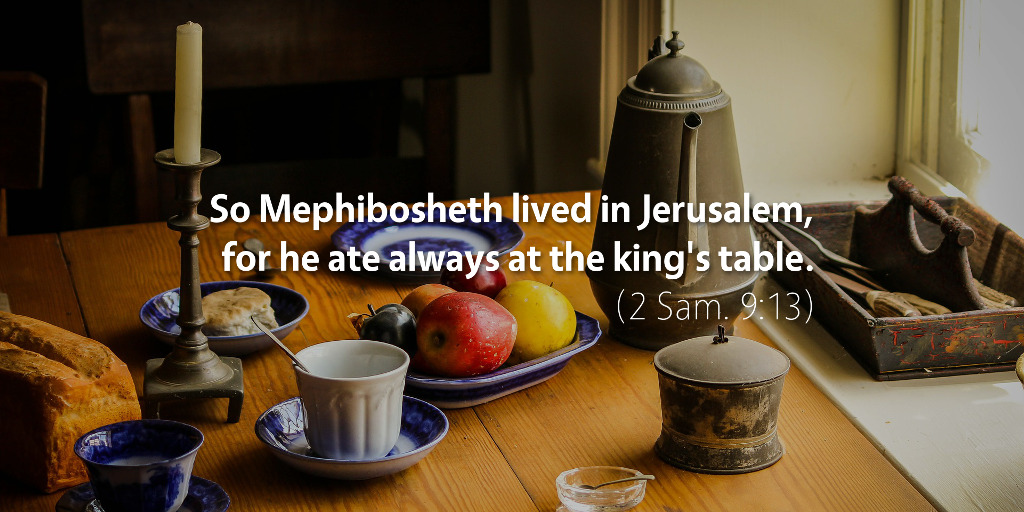Bible Readings for September 13th
2 Samuel 8–9 | 2 Corinthians 2 | Ezekiel 16 | Psalms 58–59
One of the most touching storylines from the life of David is the kindness he extends to Mephibosheth, the son of Jonathan. David and Jonathan swore covenants together (1 Sam. 18:3, 20:16, 23:18), with Jonathan promising to protect David from Saul and with David swearing to show kindness to Jonathan’s house (1 Sam. 20:15)—that is, house in the sense of the family, just as we saw in 2 Samuel 7. Additionally, David made a promise to Saul that when he became king, he would not destroy any of Saul’s descendants (1 Sam. 24:21). David did not take lightly his covenants with Jonathan and his promises to Saul, and so, at the beginning of 2 Samuel 9, we find David seeking to locate any surviving members of Saul’s house to whom he could show kindness.
It would be difficult to identify a story in the Bible that more accurately captures the essence of our relationship to Jesus than what we find in the story of David and Mephibosheth. In Mephibosheth, we see someone born into the house of Saul—a house that Yahweh had rejected because of the sin of that house’s covenantal head. Not only that, but as a result of that sin, Mephibosheth had been left crippled (2 Sam. 4:4). But, because of a covenantal promise, King David seeks to extend kindness to such a “dead dog” (2 Sam. 9:8), so he brings Mephibosheth into his palace, treats him as though he were one of his own sons (2 Sam. 9:11), and feeds him from his own table (2 Sam. 9:13).
For us, it was the sin of our first father, Adam, that rendered us not merely crippled but even dead in our sins and trespasses (Eph. 2:1). And yet, because of the covenant promises that Yahweh made to Abraham, Jesus came as a Davidic king to show us kindness, to bring us into his Father’s house, and to feed us from his table forever—now through the Lord’s Supper and ultimately at the marriage supper of the Lamb (Rev. 19:9).
But where the gospel of Jesus goes even beyond the story of David and Mephibosheth is in the cost Jesus had to pay to fulfill the promises of the covenant and to bring us into his Father’s house—nothing less than death on a cross. But just as the costs run deeper in the gospel, the blessings also run infinitely further. David could care for Mephibosheth, but he could not make him whole. Jesus, on the other hand, came to take our brokenness, sin, and sorrow upon himself, so that by his own suffering, we could be healed (Isa. 53:4–5).
If you are in Christ, Mephibosheth’s story is your story. Praise Jesus today for his covenantal kindness toward you.
Podcast: Play in new window | Download (4.8MB) | Embed
Subscribe: Apple Podcasts | RSS | More

Scripture quotations are from The Holy Bible, English Standard Version copyright © 2001 by Crossway Bibles, a division of Good News Publishers. Used by permission. All rights reserved.


